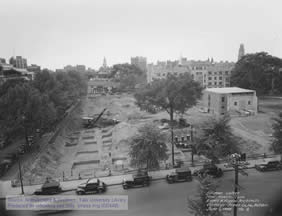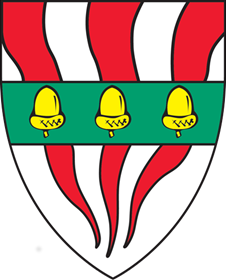Benjamin Silliman, Yale Class of 1796, (1779-1864) was one of America’s pioneers in science. Although Silliman graduated knowing nothing of the natural sciences, in 1802 President Timothy Dwight asked him to become Yale’s first science professor–to teach chemistry and natural history, so as to avoid hiring a foreigner with whom Puritan manners and morals might not sit well. Silliman proved to be eminently capable and delivered Yale’s first science lecture in 1804. Soon afterward, President Dwight sent him to Europe to purchase scientific equipment, books for the College library, and a cabinet of two thousand minerals to begin the study of mineralogy at Yale. After his return, he played a leading role in the foundation of the Yale Medical School, the Peabody Museum, and the American Journal of Science, a scientific periodical still published today.
In 1852, Silliman was instrumental in the founding of the Yale School of Engineering, a pioneering event in professional scientific education in the United States. To honor such a towering figure in the history of science at Yale and in the United States, our college was named after Benjamin Silliman.
In February 2024, Yale released “Yale and Slavery: A History” by David Blight with the Yale and Slavery Research Project. The book is a historical examination that uncovers many pieces of Yale’s ties to slavery in the early period of the University’s 300+ year history, and it provides important information about prominent figures in Yale’s early history. Including Benjamin Silliman and his involvement with slavery.
However, today, Silliman College is a diverse community of students from all around the world and of varying racial, ethnic, religious, sexual, and gender identities. As a community, we are committed to celebrating this diversity as well as fostering inclusivity for all. As current Sillimanders, we reject any and all forms of oppression. We seek to represent the best qualities of human kindness and acceptance and strive to create a community of compassion and understanding.
The book marks a milestone in the Yale and Slavery Research Project, which was launched in 2020 and is part of ongoing Belonging at Yale efforts to create a stronger community. The Yale and Slavery Research Project website (https://yaleandslavery.yale.edu/) includes a free digital version of the book, information about the university’s commitment to building a stronger community, a timeline and videos of research findings, a mobile app that provides a self-guided tour of sites associated with Yale’s history and legacy of slavery, and ways for the community to respond.


